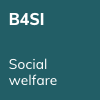EDP supported six young female entrepreneurs from vulnerable contexts to create their own business, stimulating their training, development of skills and financial autonomy.
Sowing opportunities
As part of the Young Rural Entrepreneur Program (PJER), using the Veredas Fund, in April 2021 EDP supported six young female entrepreneurs from the municipality of São Gonçalo do Amarante. The goal was to create work and income, as well as to reduce their context of social and economic vulnerability.
The Veredas Fund and the PJER
The Veredas Fund, created by the Local Economic Development Agency - ADEL, is meant to finance projects by young entrepreneurs who usually face enormous difficulties when trying to get credit from financial institutions, in territories where the PJER is in force.
The Fund is made up of three microcredit lines: seed, oriented, and directed, the latter occurring when an investing partner presents pre-selected young people. This is what happened with EDP, and Adel ended up granting credit to six young entrepreneurs between the ages of 22 and 32 from the rural and semi-rural areas of São Gonçalo do Amarante and surrounding areas in Ceará.
These young women had already attended, in 2020, the Protagonism and Business Entrepreneurship and Socio-Environmental Impact Course. Conducted by ADEL and Instituto EDP, through PJER, its mission is to develop projects and businesses with social and environmental impact in rural areas. It makes accessible to young people training and knowledge, credit, collaborative networks and technologies that enable them to start and develop their projects.
During the course, the young women develop their technical and management skills, and prepare Business Plans that they submit to the Veredas Fund. Before the credit is granted, there are visits by ADEL's technical team, to analyze the context of the proposed project, followed by an analysis by the Fundo Veredas managing committee, which evaluates the technical and economic feasibility, the grace period, and the payment plans.
The young rural entrepreneurs find in the PJER a unique opportunity to develop their skills, exchange experiences and acquire knowledge that contributes to income generation, with a view to their financial independence.

